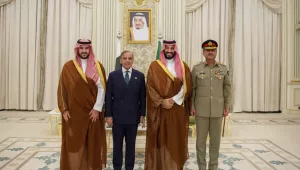Ensuring that states keep nuclear weapons and weapons-usable materials out of the hands of terrorists requires bilateral and multilateral cooperation. For more than two decades, the United States and Russia have worked together to establish effective, modern nuclear security and accounting systems. US cooperation with China has been nearly as long, though more limited. Over that time, security in all three countries has improved because of independent and cooperative efforts.
There are, however, challenges ahead. The conflict in Ukraine, broad political differences, and long-standing unresolved issues related to nuclear security cooperation may cause Russia to decline additional support in this area from the United States after 2014. In China, spying accusations and limited information about security at Chinese facilities has hindered the expansion of cooperation.
The Stanley Foundation convened a group of experts and policymakers from the United States and abroad to address these issues October 15–17, 2014, at its 55th annual Strategy for Peace Conference. The group discussed overcoming challenges to nuclear security cooperation faced by the United States, Russia, and China, and next steps in ensuring that countries put in place effective and sustainable nuclear security measures with strong security cultures.
Policy Brief for 55th Annual Strategy for Peace Conference, October 15-17, 2014, in Warrenton, VA. Conference sponsored by the Stanley Foundation, Muscatine, Iowa.
Roth, Nickolas. “Strengthening International Cooperation on Nuclear Materials Security.” Stanley Foundation, November 4, 2014
The full text of this publication is available via Stanley Foundation.





